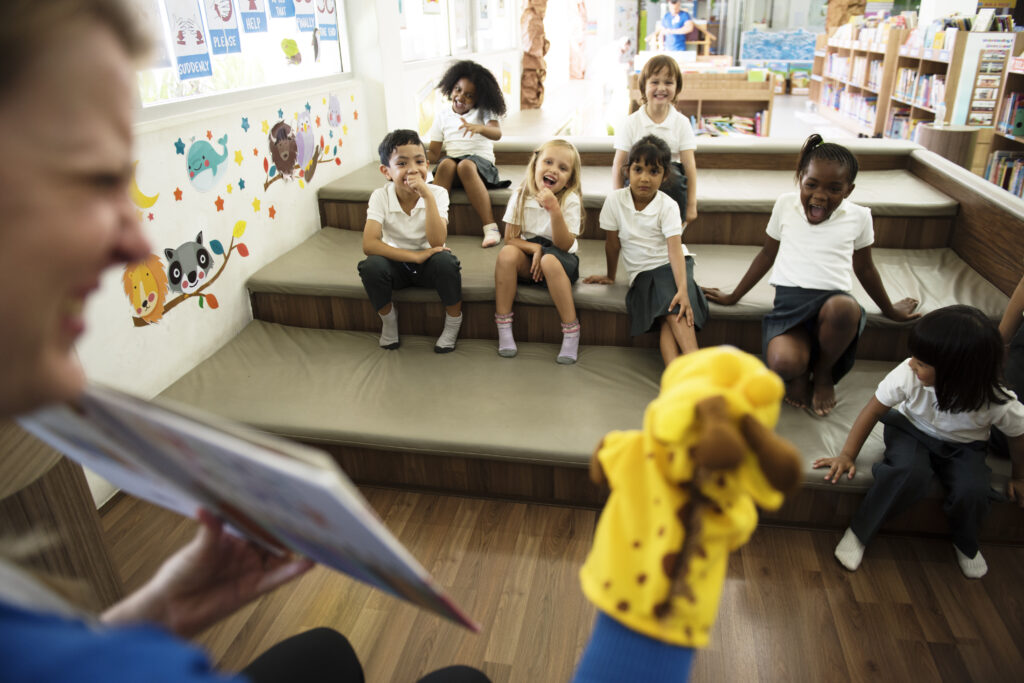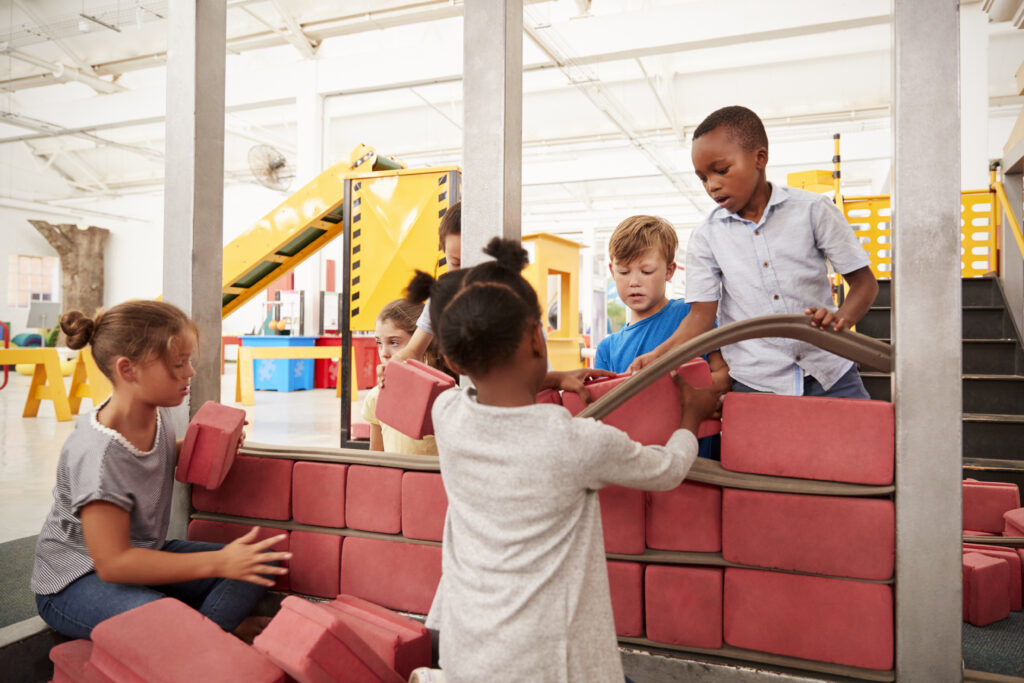Categories
book live demo
Ready to get started?
Create your No Obligation Account or book a Live Demo today!
create account
Tags
School Readiness: Preparing Children for Kindergarten Success
October 22, 2024
The transition to kindergarten is a significant milestone for both children and parents. While academic skills like recognizing letters and numbers are essential, true school readiness encompasses a broader range of developmental areas, including social, emotional, physical, and cognitive skills. Preparing children kindergarten goes beyond just the basics—it’s about equipping them with the confidence and independence they need to thrive in a structured learning environment.
In this post, we’ll explore key ways to prepare your child for kindergarten and ensure a smooth transition for the whole family.

1. Develop Basic Academic Skills
Before starting kindergarten, it’s helpful for children to become familiar with foundational academic concepts. This includes recognizing their name, knowing the alphabet, identifying shapes and colors, and counting up to ten. These skills can be built through everyday learning experiences:
- Reading Together: Regularly reading with your child helps foster language development and early literacy. Engage with the story by asking questions and encouraging your child to point out letters, words, and illustrations.
- Counting Games: Incorporate counting into daily activities, such as counting toys, snacks, or steps. This makes learning numbers fun and relevant to your child’s everyday world.
- Fine Motor Practice: Activities like drawing, cutting with safety scissors, and playing with building blocks help develop fine motor skills. Provide plenty of opportunities for your child to practice using crayons, markers, and other age-appropriate tools.
Don’t forget to download our free preschool & kindergarten progress report templates!
2. Foster Independence
Kindergarten introduces a level of independence as children begin to navigate school without constant parental guidance. You can support your child in developing independence by encouraging them to:
- Dress Themselves: Practice getting dressed, fastening shoes, and zipping up jackets. These tasks build motor skills and foster self-reliance.
- Take Care of Personal Needs: Make sure your child is comfortable using the bathroom independently, washing their hands, and managing basic hygiene.
- Follow Simple Instructions: Teach your child to follow one- or two-step directions, such as “Please put your toys away and wash your hands for lunch.” This helps them get used to classroom routines.
3. Build Social and Emotional Skills
Social and emotional readiness is key to a successful kindergarten experience. Children will need to interact with peers, share, take turns, and follow classroom rules. Help your child build these skills by:
- Teaching Sharing and Cooperation: Practice sharing and playing cooperatively with others, whether during playdates or family activities.
- Encouraging Emotional Expression: Help your child identify and talk about their emotions, teaching them to express feelings in healthy ways.
- Modeling Problem-Solving: Guide your child through common social challenges, such as disagreements over toys, by role-playing solutions. This teaches them how to resolve conflicts constructively.

4. Establish Consistent Routines
Children thrive on routine, and establishing consistent daily schedules before kindergarten helps them adjust to the school environment. This post from Zero to Thrive outlines the many benefits of consistent routines.
- Morning Routine: Create a predictable morning routine that includes getting dressed, eating breakfast, and preparing to leave on time.
- Bedtime Routine: Ensure your child gets adequate sleep by following a regular bedtime schedule. Preschool-aged children need about 10-12 hours of sleep each night.
- Mealtime Routine: Set regular times for meals and snacks, preparing your child for the structured meal schedules they will follow in kindergarten.
5. Encourage a Love for Learning
Fostering curiosity and a love for learning sets the stage for academic success. When children see learning as an enjoyable and exciting process, they’re more likely to embrace new challenges.
- Explore New Topics Together: Take nature walks, visit museums, or engage in cooking activities. These experiences encourage curiosity and problem-solving skills.
- Ask Open-Ended Questions: Encourage critical thinking by asking questions that require more than a yes or no answer. For example, “Why do you think that happened?” or “What do you think will happen next?”
- Celebrate Learning: Acknowledge your child’s curiosity and celebrate their effort to learn new things, reinforcing a positive attitude toward education.
6. Practice Communication Skills
Communication is an essential skill in kindergarten, where children will be expected to follow instructions, participate in discussions, and express their needs.
- Encourage Clear Speech: Help your child practice expressing their thoughts in full sentences and explaining their ideas or feelings.
- Build Listening Skills: Practice listening by giving your child instructions and asking them to repeat back what they’ve heard.
- Group Participation: Encourage group activities, such as family discussions or playdates, where your child can practice speaking, listening, and taking turns.
7. Address Separation Anxiety
Starting kindergarten may be the first time your child spends an extended period away from home. To ease separation anxiety, try these strategies:
- Short Separations: Gradually introduce short periods away from your child, leaving them with a trusted friend or relative to help them adjust.
- Visit the School: Take your child to visit the school before their first day. Familiarizing them with the environment can ease anxiety and create excitement.
- Positive Conversations: Speak positively about school, emphasizing the fun experiences and new friends they’ll make. Your enthusiasm will help reassure them.
For more help with separation anxiety at daycare, check out this helpful post on helping both parents and children.
Conclusion
Preparing your child for kindergarten involves nurturing a balance of academic, social, emotional, and physical skills. By building routines, fostering independence, and encouraging curiosity, you can ensure that your child feels confident and excited for this new chapter in their life. Remember, every child develops at their own pace—celebrate the progress they make along the way!
At ChildFriendly, we are dedicated to helping parents and childcare providers prepare children for school success. Visit our blog for more resources and tips on supporting your child’s journey to kindergarten readiness.
Leave a Reply Cancel reply
Solutions
Registration & Waitlist Management
Billing & Financial Management
Automation, Tracking, & Reports
Attendance & Check In
Classroom & Learning Management
Parent Engagement & Communication
Staff Scheduling & Management
Modern Platform & Easy Set Up
Resources
Resource Center
FAQ
About Us
Pricing
Careers
Privacy Policy
Trust & Security
Monday - Friday,
9:00am - 5:00pm MST
Connect With Us
Rocky View County, AB, CA
T4B3L5
book live demo
Terms of Use
create account
contact us
© 2024
